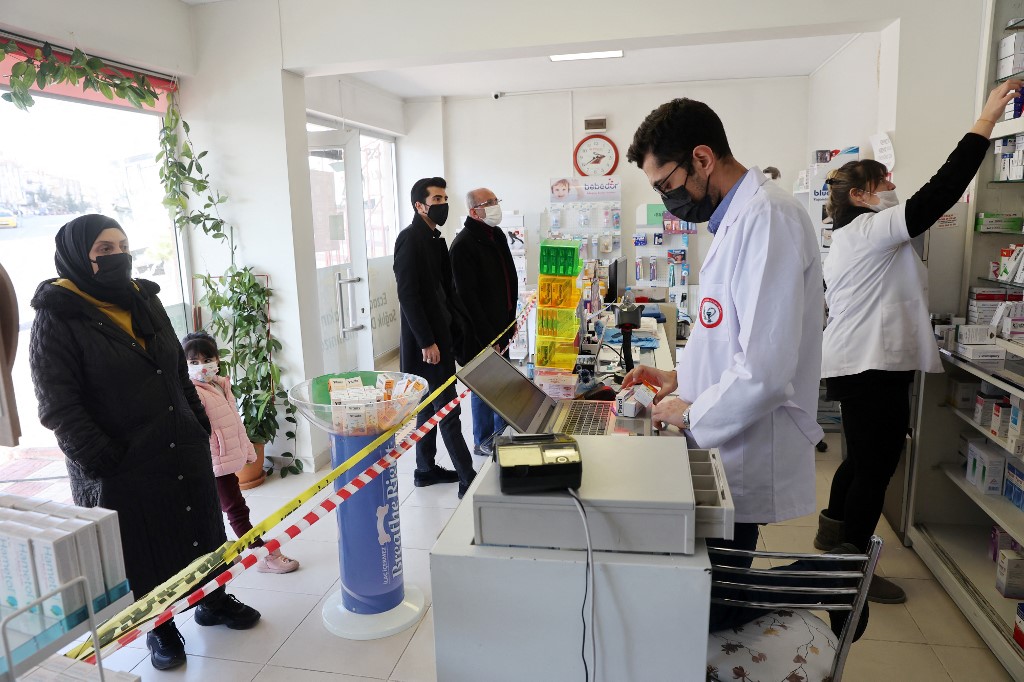Pharmacists across Turkey are getting ready to go on strike to protest their low profitability ratios, which were last updated in July as part of a decree on the pricing of pharmaceuticals, the Cumhuriyet daily reported on Friday.
The latest update increased pharmacists’ profit from medicine costing up to 100 lira ($5.50) from 25 to 28 percent while raising their profit from medicine priced at over 200 lira ($11.10) from 12 to 13 percent.
The increase in their profits wasn’t satisfactory for the pharmacists in Turkey, where inflation rose to a 24-year high of 79.6 percent in July, according to official data, further crippling the purchasing power of citizens.
Pharmacists will announce their actions in the coming days, Cumhuriyet said, adding that they plan to increase the number of pharmacies operating so as not to disrupt services.
Speaking to Cumhuriyet about the pharmacists’ decision to go on a nationwide strike, İstanbul Chamber of Pharmacists chairwoman Pınar Özcan stated that they were intent on survival.
“One in two pharmacies [in Turkey] is in danger of closing. The update didn’t satisfy us as it wasn’t done at the rate of inflation. We had to take this decision for action in order to survive,” she said.
There are approximately 25,000 pharmacies in Turkey.
Meanwhile, a report by Deutsche Welle Turkish service on Friday also quoted Ankara Chamber of Pharmacists chairman Taner Ercanlı as saying that another ongoing problem was the scarcity of some crucial drugs in the market.
According to Ercanlı, 17 out of every 100 drugs, especially those from drug groups related to blood pressure and heart and organ transplants, are currently not available on the market in Turkey.
A shortage of surgical and medical supplies, which started in late 2021 mainly due to the country’s currency crisis, has turned into a public health problem, with hospitals lacking items needed for vital surgeries.
Inflation began to surge last autumn in Turkey when the lira slumped after the central bank gradually cut its policy rate by 500 basis points to 14 percent in an easing cycle sought by President Recep Tayyip Erdoğan.
Inflation this year has been further fueled by the economic fallout from Russia’s invasion of Ukraine, as well as the lira’s continued decline. The currency weakened 44 percent against the dollar last year and is down another 27 percent this year.
Annual inflation is now at the highest level since September 1998, when it was 80.4 percent and Turkey was strugglling to end a decade of chronically high inflation.
